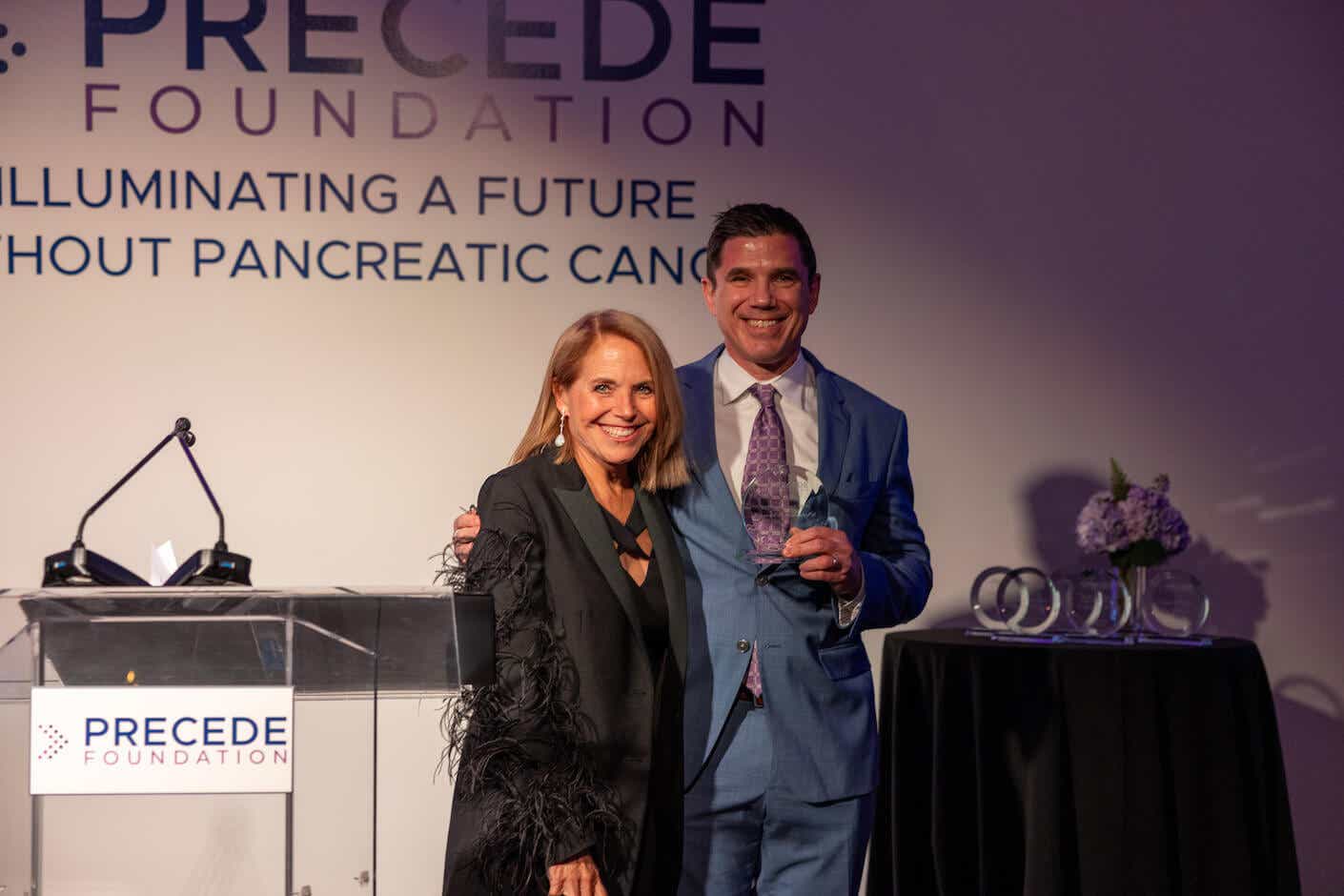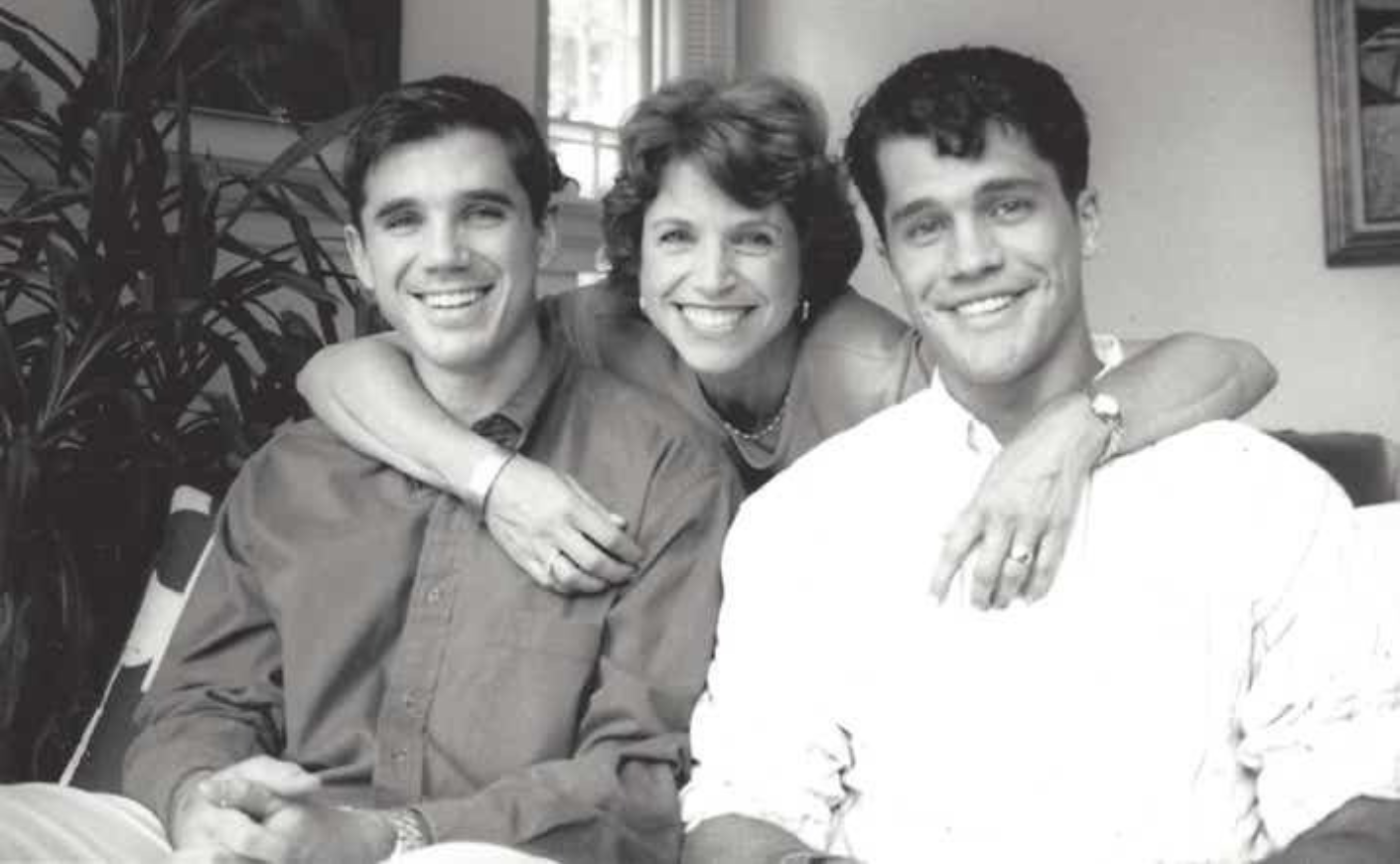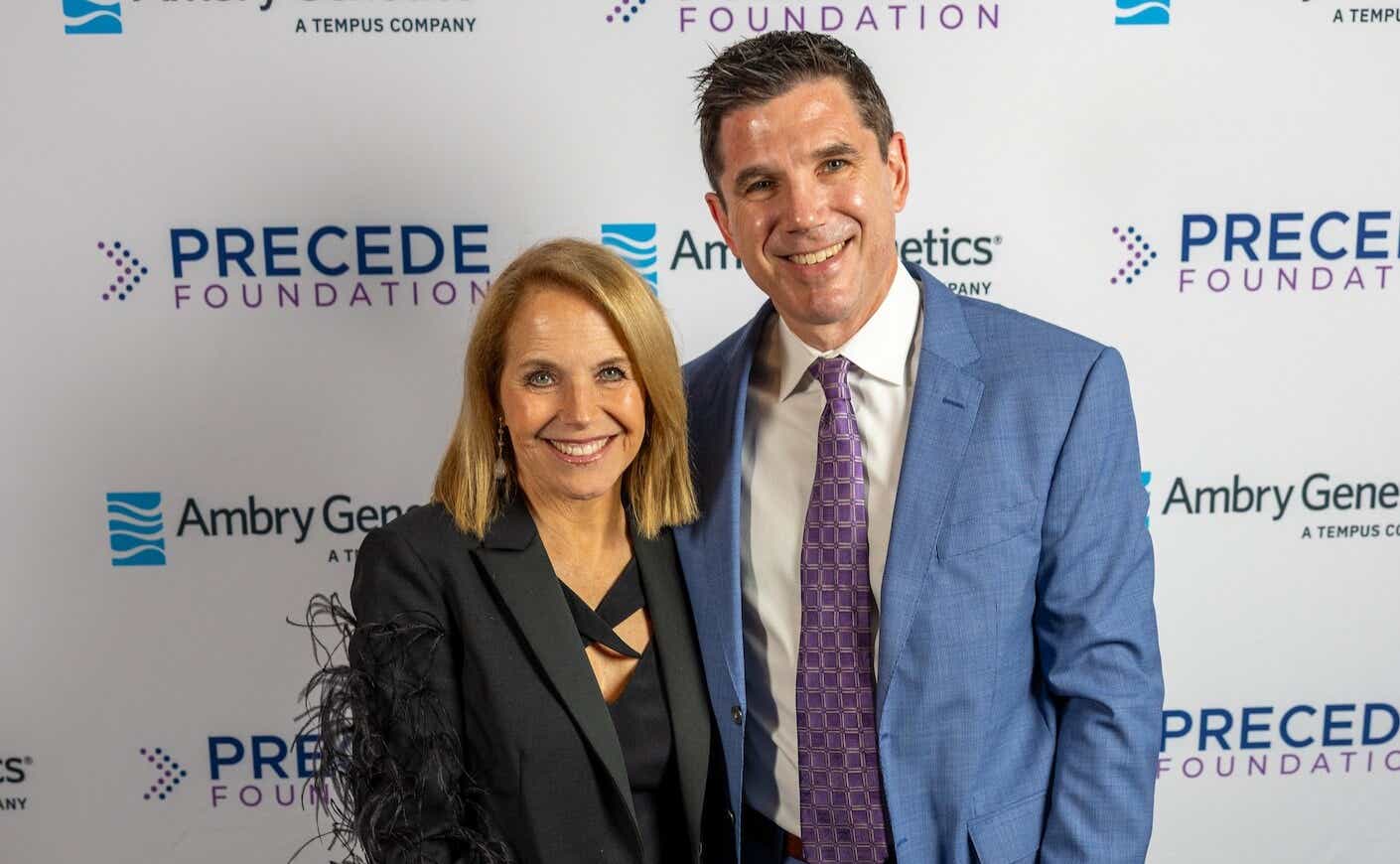On Tuesday night, I had the incredible honor of presenting my nephew, Dr. Ray Wadlow, with the Nobility in Science Award at the inaugural PRECEDE Gala. PRECEDE — which stands for the Pancreatic Cancer Early Detection Consortium — is an international coalition of top scientists, doctors, and industry leaders who are determined to change the story of pancreatic cancer through screening and early detection. Their goal is bold but achievable: to increase the five-year survival rate from 10 percent to 50 percent within the next decade. (For context, when pancreatic cancer is caught at stage 1, the five-year survival rate jumps to 83 percent!)
Ray is a gastrointestinal oncologist and the director of the High-Risk Pancreatic Cancer Clinic at the Inova Schar Cancer Institute. He’s also a key investigator and committee chair for PRECEDE, which now includes more than 60 leading academic medical centers worldwide and has enrolled over 10,000 high-risk patients — those with certain genetic mutations or a family history of the disease. Together, these institutions are building the largest-ever cohort of high-risk patients, collecting vital data and biospecimens, and using cutting-edge technology to detect pancreatic cancer earlier than ever before.

Ray’s commitment to this work is deeply personal. His mother — my sister — died of pancreatic cancer at just 54 years old. Since then, Ray has devoted his career to understanding this devastating disease and helping others avoid the same fate. Watching him channel that loss into purpose has been profoundly moving. As a doctor, researcher, and advocate, he’s tireless in his efforts to save lives through early detection — and I couldn’t be prouder to see him recognized for his extraordinary contributions.
Moments like this remind me how powerful purpose can be — and how personal stories can spark real change. Here are my full remarks from the evening, celebrating Ray and the remarkable PRECEDE community:
"I could not be more pleased or honored to present an award tonight to my nephew, Ray Wadlow. Ray was the first Couric grandchild…I’ll never forget how excited my parents were to expand our family and how much pride they took in all of Ray’s accomplishments. But it’s who he became as a doctor and a man — that has most impressed me.
Ray’s mom — my oldest sister, Emily — was diagnosed with pancreatic cancer 25 years ago, and fought like hell to live. She was running for Lieutenant Governor of Virginia with Senator Mark Warner. Many predicted she would ultimately become the first female governor of the Old Dominion…she was that loved and respected. But she lost her fight in 2001 when she was just 54. Ray always wanted to be a doctor, but losing his mom gave him a new calling. He’d become an oncologist.
Oncologists have one of the hardest jobs in the world, and in my opinion, are undervalued and unappreciated…until you need one. Ray has become a superb oncologist…always learning, always striving to help patients and to do anything he can to treat and even prevent this disease. Sure, there are moments of joy when a patient is cured, or when their disease is managed and they can be there for an important life event or milestone, but there are also moments when a patient comes to the end of the road, and that’s when the humanity of a doctor like Ray comes in. I asked him, 'What do you do when you’ve done everything you could for a patient…and there’s nothing more you can offer?' He told me about a young man, not unlike my late husband Jay, who was 38 and had three small children. He had stage four colon cancer, and Ray had exhausted all his options.

'Oh my god, Ray, how do you deal with that?' I asked. And he told me, 'Sometimes I just sit in the room with the family, and I cry.' It takes a special kind of doctor, a special kind of empathy to do that. But that's who Ray Wadlow is.
When his grandfather, my father, was dying in the hospital, I wanted my dad to get a feeding tube — he could no longer swallow — so he could take his Parkinson's medication. Ray calmly but directly told me why, for my dad, at 91 years old, that wasn’t a good idea, and how his wonderful grandfather and my wonderful dad would not want to suffer anymore. I so valued that conversation. It helped me appreciate my father’s life and accept his death.
No, Ray doesn’t belong to a hereditary class with high social or political status. He’s not aristocratic. But he is the second definition of noble in the Oxford dictionary: 'having or showing fine personal qualities or high moral principles and ideals.'
So it’s only fitting that Ray is receiving the Nobility in Science award. I know I'm his proud aunt, but I'm sure his colleagues and especially his patients and their families agree — you could not have made a better choice."









